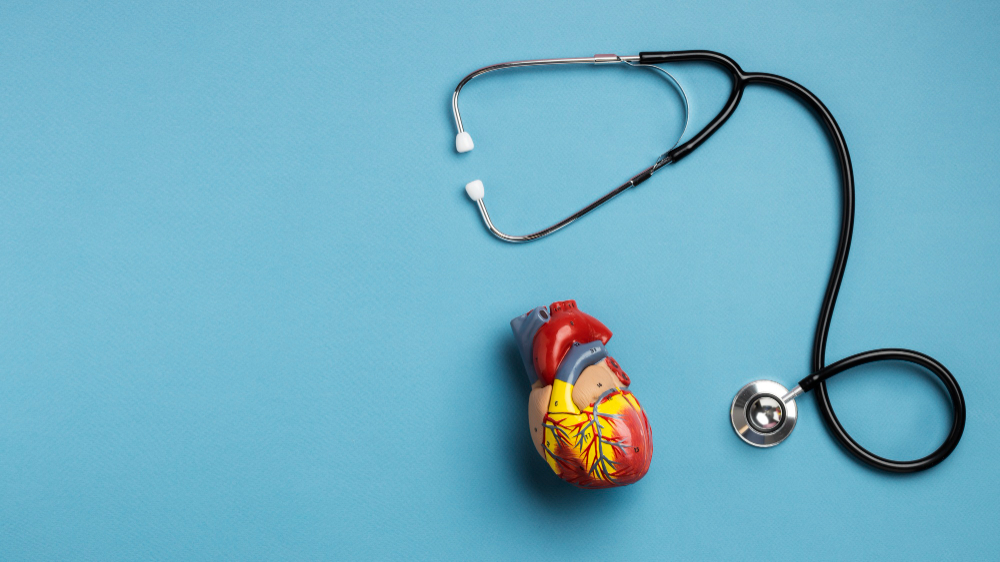What is Cardiac Arrhythmia?
Your heart is the lifeblood of your body. With each beat, it pumps the oxygen and nutrients essential for life throughout your body. However, sometimes these beats can lose their regular rhythm. Cardiac arrhythmia, commonly referred to as arrhythmia, is the general term for these irregularities. But what does this mean, and why does it happen? Arrhythmia occurs when the heart beats too fast, too slow, or irregularly, leading to serious health issues. These disorders can range from being so mild that they go unnoticed to being so severe that they pose a life-threatening risk. Let’s delve into the different types of arrhythmias, their symptoms, causes, and treatment options.
Types of Cardiac Arrhythmia
Cardiac arrhythmias can manifest in various forms. Each has its own characteristics and impact. Understanding these disorders is crucial for discovering ways to treat and prevent them.
Arrhythmia: Deviation from the Heart’s Normal Rhythm
Arrhythmia refers to a deviation from the heart’s normal rhythm. This deviation may present as the heart beating faster, slower, or more irregularly. Arrhythmia is often unnoticed at first but can develop into a condition that leads to serious health problems. It is caused by malfunctions in the heart’s electrical system, and if left untreated, it can result in heart failure or serious complications like stroke.
Bradycardia: Slow Heartbeat
Bradycardia is when the heart beats slower than normal. A normal heart rate should be between 60 and 100 beats per minute. However, in cases of bradycardia, this rate drops below 60 beats per minute. This means the heart is not pumping enough oxygen-rich blood to the body. As a result, a person may feel weak and fatigued. Bradycardia is more common in older individuals and those with heart conditions.
Tachycardia: Rapid Heartbeat
Tachycardia occurs when the heart beats faster than normal. The heart rate exceeds 100 beats per minute. This condition forces the heart to work harder, leading to exhaustion over time. While tachycardia can be short-lived, prolonged episodes can increase the risk of a heart attack. This condition is often triggered by stress, anxiety, caffeine intake, or underlying heart diseases.
Atrial Fibrillation: Quivering in the Heart’s Chambers
Atrial fibrillation occurs when the upper chambers of the heart (atria) quiver irregularly and rapidly. This disrupts the smooth flow of blood between the chambers of the heart and can lead to blood clots. Atrial fibrillation significantly increases the risk of stroke and is a serious type of arrhythmia often seen in older individuals and those with a history of heart disease.
Ventricular Fibrillation: A Life-Threatening Rhythm Disorder
Ventricular fibrillation is a condition where the lower chambers of the heart (ventricles) quiver irregularly, preventing effective blood pumping. This can lead to sudden and life-threatening cardiac events, such as a heart attack. Ventricular fibrillation requires immediate medical intervention as it can be fatal within minutes if not treated.
Symptoms of Cardiac Arrhythmia
Cardiac arrhythmia can present with a variety of symptoms. These symptoms can range from mild and transient to severe and life-threatening. Recognizing these symptoms and acting promptly is crucial to maintaining a healthy life.
Palpitations: Feeling of Fast or Slow Heartbeats
Heart palpitations are one of the most common symptoms of arrhythmias. When you feel your heart beating faster or slower than normal, it may indicate that something is amiss. The sensation of palpitations often starts suddenly and can last for a few seconds or minutes. While this can be alarming, it usually doesn’t indicate a serious health issue in mild cases. However, recurrent palpitations should be evaluated by a specialist.
Dizziness and Fainting: Common Symptoms of Arrhythmia
Dizziness is a common symptom of cardiac arrhythmia. Irregular heartbeats can reduce the amount of oxygen-rich blood reaching the brain, leading to dizziness and fainting. If you frequently experience fainting, it could signal a serious heart condition requiring immediate medical attention.
Shortness of Breath: The Heart’s Irregular Function
Shortness of breath is another common symptom of cardiac arrhythmias. When the heart isn’t functioning properly, it fails to pump sufficient oxygen to the body. This can cause difficulty in breathing. This condition can occur suddenly, especially during exertion or at rest. Shortness of breath may be an indication of more serious conditions like heart failure.
Chest Pain and Discomfort: Symptoms Similar to a Heart Attack
Chest pain is one of the most serious symptoms of cardiac arrhythmias. This pain is often similar to that of a heart attack and is usually felt on the left side of the chest. Chest pain occurs when the heart muscle doesn’t receive enough blood, signaling a potentially serious medical condition. Immediate medical assistance is vital when experiencing this kind of pain.
Causes of Cardiac Arrhythmia
There are many different causes of cardiac arrhythmias. These causes can be influenced by various factors, including lifestyle, genetics, and existing health conditions. Understanding the causes of cardiac arrhythmias is the first step in preventing these disorders.
Heart Diseases: One of the Most Common Causes
Heart diseases are one of the most common causes of cardiac arrhythmias. Weakening of the heart muscle, damage to the heart valves, or malfunctions in the heart’s electrical system can lead to arrhythmias. Heart diseases typically increase with age and can cause the heart’s rhythm to become irregular.
High Blood Pressure: Pressure on the Heart
High blood pressure places significant pressure on the heart. This condition can cause the heart muscle to thicken, eventually leading to an irregular heart rhythm. Over time, high blood pressure can damage the heart’s electrical system, leading to arrhythmia. Therefore, it’s important to regularly monitor and treat high blood pressure as needed.
Electrolyte Imbalances: The Role of Potassium and Calcium
Electrolyte imbalances are a common cause of cardiac arrhythmias. The balance of minerals like potassium and calcium is crucial for the normal functioning of the heart. A deficiency or excess of these minerals can affect the heart’s rhythm and lead to serious arrhythmias. Therefore, maintaining a balanced diet and adequate hydration is important for preserving electrolyte balance.
Effects of Medications: Side Effects and Overdose
Certain medications can directly affect the heart’s rhythm. In particular, heart and blood pressure medications can cause arrhythmias as a side effect. Additionally, taking the wrong dosage or using medications without a doctor’s supervision can lead to serious arrhythmias. It is important to be cautious with medication use and to be aware of potential side effects.
Stress and Anxiety: Psychological Factors
Stress and anxiety are psychological factors that can trigger cardiac arrhythmias. Under intense stress, the body releases stress hormones such as cortisol, which can negatively impact heart rhythm. Additionally, anxiety attacks can cause the heart to beat faster and more irregularly. Stress management and relaxation techniques can help prevent such conditions.
Risk Factors for Cardiac Arrhythmia
The risk of developing cardiac arrhythmias can increase due to certain factors. These factors range from an individual’s genetic makeup to their lifestyle. Knowing the risk factors makes it easier to take preventive measures.
Age and Gender: Who Is More at Risk?
Cardiac arrhythmias are more commonly seen in older individuals. As we age, the heart muscle weakens, and arrhythmias become more frequent. Moreover, men are at higher risk compared to women. However, post-menopausal women may also face increased risk. Therefore, regular heart check-ups are particularly important in later life.
Genetic Factors: Family History of Arrhythmia
Genetic predisposition plays an important role in cardiac arrhythmias. Individuals with a family history of arrhythmias may be more susceptible to these conditions. Genetic factors can affect the heart’s electrical system, increasing the risk of developing arrhythmias. Understanding your family history and being aware of this risk is important for early diagnosis and treatment.
Smoking and Alcohol Use: How They Affect Heart Health
Smoking and alcohol consumption have negative effects on heart health. Smoking narrows blood vessels, causing the heart to work harder, which can lead to arrhythmias. Excessive alcohol consumption can also disrupt heart rhythm and cause sudden arrhythmias. Therefore, it is recommended to limit or completely avoid smoking and alcohol use.
Diabetes and Obesity: The Role of Chronic Diseases
Diabetes and obesity are significant risk factors for developing cardiac arrhythmias. Uncontrolled blood sugar in diabetes can damage the heart’s blood vessels, leading to arrhythmias. Obesity increases the burden on the heart, which can trigger arrhythmias. Therefore, maintaining a healthy weight and managing diabetes effectively are crucial for protecting heart health.
Sleep Apnea: A Hidden Danger
Sleep apnea, a condition where breathing stops temporarily during sleep, can negatively impact heart rhythm. In individuals with sleep apnea, decreased oxygen levels during the night can cause the heart to beat faster and irregularly. Over time, this condition can lead to serious cardiac arrhythmias. If sleep apnea symptoms are noticed, it’s important to consult a specialist.
How is Cardiac Arrhythmia Diagnosed?
Accurate diagnosis of cardiac arrhythmias is crucial for determining appropriate treatment methods. The various diagnostic methods offered by modern medicine play a critical role in detecting these disorders.
ECG: The Most Common Diagnostic Method
Electrocardiography (ECG) is one of the most commonly used methods for diagnosing cardiac arrhythmias. This test records the heart’s electrical activity and detects abnormal rhythms. An ECG is a quick and painless procedure and is usually sufficient for identifying most arrhythmias.
Holter Monitor: 24-Hour Heart Monitoring
A Holter monitor is a device that allows for the continuous monitoring of the heart’s rhythm over 24 hours. This portable device is worn during normal daily activities. A Holter monitor is ideal for detecting temporary arrhythmias and is used in cases requiring long-term monitoring.
Stress Test: Evaluating the Heart’s Performance Under Pressure
A stress test evaluates the heart’s performance under physical stress. During this test, the patient walks on a treadmill while their heart rhythm is monitored. A stress test is particularly used to detect arrhythmias in individuals with coronary artery disease or other heart conditions.
Electrophysiological Study: Mapping the Heart’s Electrical System
An electrophysiological study (EPS) is a procedure that examines the heart’s electrical system in detail. During this procedure, thin catheters are used to measure the electrical activity within the heart. EPS is used to determine the cause of complex arrhythmias and plan treatment strategies.
Treatment Methods for Cardiac Arrhythmia
The treatment of cardiac arrhythmias varies depending on the type and severity of the disorder. Treatment options include medication, surgical intervention, and lifestyle changes. Appropriate treatment can help restore normal heart rhythm and prevent serious complications.
Medication: Drugs That Regulate Heart Rhythm
Medication is one of the most commonly used methods for treating cardiac arrhythmias. These drugs regulate heart rhythm and prevent potential complications. Medications often require long-term use and should be taken under a doctor’s supervision.
Catheter Ablation: Eliminating the Abnormal Areas of the Heart
Catheter ablation is a procedure used to eliminate abnormal electrical pathways in the heart. During this procedure, thin catheters are inserted into the heart, and abnormal areas are destroyed using radio waves. Catheter ablation can provide a permanent cure for certain types of arrhythmias and may reduce the need for medication.
Pacemaker and ICD: Keeping Heart Rhythm Under Control
Pacemakers and implantable cardioverter defibrillators (ICDs) are devices used to control heart rhythm. A pacemaker activates when the heart slows down and speeds up the heart rate. An ICD detects life-threatening arrhythmias and corrects the heart rhythm. These devices can be life-saving in cases of life-threatening arrhythmias.
Lifestyle Changes: Recommendations for Protecting Heart Health
Lifestyle changes are essential for managing and preventing cardiac arrhythmias. Regular exercise, a healthy diet, and stress management can be effective in maintaining heart health. Additionally, limiting or completely avoiding smoking and alcohol use is recommended.
Alternative Treatments: Herbal Products and Complementary Medicine
Some people prefer herbal products and complementary medicine methods in the treatment of cardiac arrhythmias. However, such treatments should be used under the supervision of a doctor and supported by scientific evidence. When combined with traditional treatment methods, alternative treatments can be beneficial but may not be sufficient on their own.
Living with Cardiac Arrhythmia
Living with cardiac arrhythmia requires certain adjustments and careful health management. However, with the right treatment and lifestyle changes, the effects of this condition can be minimized, and a quality life can be maintained.
Regular Check-ups: Monitor Your Heart Health
Regular medical check-ups are vital for individuals with cardiac arrhythmia. These check-ups play a critical role in monitoring the treatment process and preventing potential complications. Additionally, regular monitoring of heart rhythm can enhance the patient’s quality of life.
Nutrition and Diet: Heart-Healthy Foods
A healthy diet is essential for protecting heart health. Heart-healthy foods include leafy greens, whole grains, lean proteins, and omega-3-rich fish. Additionally, limiting salt and sugar intake is beneficial for heart health. A balanced and nutritious diet can help manage cardiac arrhythmias.
Exercise and Physical Activity: Finding the Right Balance
Regular exercise is one of the most effective ways to improve heart health. However, an exercise program for individuals with cardiac arrhythmia should be carefully planned. Excessive exertion can negatively impact heart rhythm. Light to moderate exercises, such as walking or swimming, can support heart health and help manage arrhythmias.
Stress Management: Tips for Protecting Heart Health
Stress can trigger or worsen cardiac arrhythmias. Therefore, it is important to learn and practice stress management techniques. Meditation, deep breathing exercises, and regular relaxation can reduce the negative effects of stress. Additionally, social support and engaging in hobbies can be effective in managing stress.
Social Support: The Role of Family and Friends
Social support is of great importance for individuals living with cardiac arrhythmia. Family and friends can provide moral support and increase participation in the treatment process. Additionally, the support of a social network can improve the patient’s quality of life and reduce feelings of loneliness.
Ways to Prevent Cardiac Arrhythmia
Preventing cardiac arrhythmias is possible by adopting a healthy lifestyle. Various measures can be taken to prevent this condition, which can also have positive effects on overall health.
Healthy Lifestyle: The Foundation for Preventing Arrhythmia
A healthy lifestyle is the most effective way to prevent cardiac arrhythmias. Balanced nutrition, regular exercise, and avoiding harmful habits are the basic components of protecting heart health. Additionally, regular health check-ups and stress management are important for reducing the risk of developing these disorders.
Regular Sleep: Why It’s Important for Heart Health
Regular and quality sleep is critical for heart health. During sleep, the body regenerates, and the heart rhythm works regularly. Sleep deprivation or irregular sleep can negatively affect heart rhythm and increase the risk of arrhythmia. Therefore, it is important to ensure sufficient and quality sleep every night.
Quitting Smoking and Alcohol: Good for Your Heart
Smoking and alcohol have serious negative effects on heart health. Smoking narrows the heart’s blood vessels, leading to arrhythmias. Alcohol, especially when consumed in excess, can disrupt heart rhythm. Quitting smoking and alcohol is an important step in preventing cardiac arrhythmias.
Regular Exercise: Keeping Your Heart Rhythm Regular
Regular exercise improves heart health and helps prevent arrhythmias. However, the exercise program should be carefully planned, and excessive exertion should be avoided. Light to moderate exercises help regulate heart rhythm and support overall health. In the long term, regular physical activity reduces the risk of developing cardiac arrhythmias.
Coping with Stress: Relaxation Techniques for Your Heart
Stress can be a trigger for cardiac arrhythmias. Therefore, it is important to develop and practice techniques for coping with stress. Meditation, yoga, deep breathing exercises, and regular relaxation can reduce the negative impact of stress on the heart. Additionally, getting social support and engaging in hobbies can be effective in stress management.
Cardiac Arrhythmia and Pregnancy
Pregnancy is a period of significant physical and emotional changes for women. During this process, cardiac arrhythmias can emerge or worsen existing conditions. Managing and treating arrhythmias during pregnancy is crucial for the health of both mother and baby.
Risks of Arrhythmia During Pregnancy
Changes in hormone levels and increased blood volume during pregnancy can increase the risk of cardiac arrhythmias. Women with a history of heart disease are particularly at higher risk for arrhythmias during pregnancy. This requires careful monitoring and the necessary precautions throughout the pregnancy.
Safe Treatment Options During Pregnancy
Treating cardiac arrhythmias during pregnancy requires careful planning to protect the health of both the mother and baby. Some medications can be safely used during pregnancy, while others may pose risks. Therefore, treatment options should always be evaluated by a specialist doctor.
Recommendations for Maintaining Heart Health During Pregnancy
Some simple but effective measures can be taken to protect heart health during pregnancy. Balanced nutrition, regular light exercise, and adequate rest can help maintain a regular heart rhythm. Additionally, avoiding stress and attending regular doctor check-ups are essential for protecting heart health during pregnancy.
Cardiac Arrhythmia in Children
Cardiac arrhythmias can be seen not only in adults but also in children. Arrhythmias in children require different symptoms and treatment approaches. This condition can be managed with early diagnosis and appropriate treatment.
Types of Arrhythmias in Children
Arrhythmias in children are often caused by congenital heart diseases or electrical system disorders. The most common types include supraventricular tachycardia (SVT) and bradycardia. These disorders can affect children’s heart health and reduce their quality of life.
Symptoms of Arrhythmias in Children
Cardiac arrhythmias in children can present with various symptoms. These symptoms include palpitations, dizziness, fainting, and shortness of breath. Children may not always be able to clearly express these symptoms, so it is important for parents to be observant.
Treatment Options for Arrhythmias in Children
The treatment of arrhythmias in children varies depending on the type and severity of the disorder. Treatment options include medication, catheter ablation, and, in some cases, surgical intervention. The treatment process should be managed by pediatric cardiology specialists.
Psychological Effects of Cardiac Arrhythmia
Cardiac arrhythmias can affect not only physical health but also mental and emotional well-being. These disorders can lead to psychological problems such as anxiety and depression, negatively impacting patients’ quality of life.
Anxiety and Depression: Challenges Faced by Those with Arrhythmia
Anxiety and depression are common among individuals with cardiac arrhythmia. These conditions can exacerbate the negative effects on heart health and worsen the patient’s overall health. Anxiety can speed up the heartbeat, triggering arrhythmias, while depression can make it more difficult for patients to adhere to treatment.
Psychological Support and Treatment Methods
Psychological support is an important part of the treatment process for individuals with cardiac arrhythmia. This support can help reduce patients’ anxiety and improve their quality of life. Psychotherapy, stress management techniques, and, if necessary, medication can be effective in this process. Additionally, participating in support groups can provide emotional support by sharing experiences with others facing similar challenges.
Common Misconceptions About Cardiac Arrhythmia
There are many misconceptions about cardiac arrhythmias circulating in society. These misconceptions can negatively impact patients’ treatment processes and overall health. Therefore, it is important to access accurate information and spread this knowledge.
Myths and Facts: How to Access Accurate Information?
There are many myths surrounding cardiac arrhythmias. For example, some people believe that these disorders only affect the elderly, but this is not true. Arrhythmias can occur at any age. Additionally, while these disorders are often thought to be serious, some are mild and treatable. Correcting such misconceptions can help raise awareness in society and enable patients to access the right treatment methods.
Cardiac Arrhythmia and Exercise: Is It Safe or Not?
For individuals with cardiac arrhythmia, exercise can often be a cause for concern. However, not every arrhythmia requires exercise restrictions. Light exercises and activities conducted under the supervision of a doctor can support heart health. The key is knowing which exercises are safe and how they should be performed, and seeking guidance from experts.
Frequently Asked Questions About Cardiac Arrhythmia
There are many questions about cardiac arrhythmias. These questions often stem from patients’ concerns about how to manage their daily lives and treatment processes. In this section, we aim to address the most frequently asked questions to alleviate these concerns.
Can Cardiac Arrhythmia Be Completely Treated?
The treatment of cardiac arrhythmias depends on the type and cause of the disorder. While some arrhythmias can be completely treated, others may require ongoing treatment and monitoring. With proper treatment, patients can lead normal lives and prevent complications.
Does Arrhythmia Lead to a Heart Attack?
Certain types of cardiac arrhythmias, particularly serious ones like ventricular fibrillation, can lead to a heart attack. However, not every arrhythmia carries this risk. Regular check-ups and appropriate treatment play a crucial role in reducing the risk of a heart attack.
Can Individuals with Arrhythmia Travel by Plane?
In general, individuals with cardiac arrhythmia can safely travel by plane, although this depends on the type and severity of the disorder. It is important to consult a doctor before long flights and to take medications with you if necessary. Additionally, staying hydrated and moving regularly during the flight can support blood circulation.
Long-Term Health Monitoring for Cardiac Arrhythmia
Long-term health monitoring is crucial for individuals with cardiac arrhythmia in managing the disease and preventing complications. Regular check-ups and monitoring can enhance the success of the treatment process.
How to Protect Your Heart Health?
Protecting heart health is one of the most important steps to living a healthy life. A balanced diet, regular exercise, and avoiding stress are the basic components of maintaining heart health. Additionally, avoiding smoking and alcohol and undergoing regular health check-ups can also support heart health.
Long-Term Treatment Plans: The Importance of Continuous Monitoring
The long-term management of cardiac arrhythmias requires regular monitoring and the implementation of treatment plans. These plans should aim to prevent disease progression and improve quality of life. Moreover, patient adherence to treatment and commitment to lifestyle changes play a crucial role in the success of the treatment process.
Recent Research on Cardiac Arrhythmia
The medical world is continuously developing new research and treatment methods for cardiac arrhythmias. These advancements are important for improving patients’ quality of life and expanding treatment options.
Recent Developments and Innovative Treatments
Recent research on cardiac arrhythmias offers promising results related to new treatment methods and technologies. Particularly, minimally invasive surgical techniques and advanced drug therapies allow for more effective management of arrhythmias. These innovations aim to improve patients’ quality of life.
What Does the Future Hold?
Research on cardiac arrhythmias suggests that more personalized and effective treatment options may be developed in the future. Genetic research and AI-supported diagnostic systems could lead to significant advancements in this field. These developments have the potential to revolutionize the treatment of cardiac arrhythmias.
Recommended Resources for Cardiac Arrhythmia
There are many resources available for those who wish to learn more about cardiac arrhythmias. These resources can help patients and their loved ones become informed and access accurate information.
Reading List: For More Information
To gain comprehensive knowledge about cardiac arrhythmias, medical books, journals, and articles can be recommended. Additionally, reliable websites and online medical libraries offer rich content on this subject. These resources can help patients become more informed and better prepared for the treatment process.
Online Communities and Support Groups
Online communities and support groups can be a valuable source of support for individuals with cardiac arrhythmia. These groups provide an opportunity to connect with others who share similar experiences and offer emotional support. Additionally, such communities can help patients better adapt to their treatment processes.
Talking to Your Doctor About Cardiac Arrhythmia
Discussing cardiac arrhythmia with your doctor is important for determining the right treatment methods and getting answers to your questions. Asking the right questions and carefully listening to your doctor’s recommendations play a critical role in the success of the treatment process.
What Questions Should You Ask?
During your doctor visit, it’s important to ask clear and specific questions about your cardiac arrhythmia. Getting information about treatment options, possible side effects, and lifestyle changes can help you better adapt to the treatment process. Additionally, asking about the frequency of regular check-ups and what to do in emergencies is also beneficial.
Preparing for Your Doctor’s Visit: What You Need to Know
Preparing for your doctor’s visit ensures that your appointment is productive. It’s important to describe your symptoms, the medications you’re taking, and your medical history to your doctor in detail. Additionally, writing down all your questions before your appointment helps ensure that you don’t miss any important details.
Cardiac Arrhythmia and Insurance Coverage
The cost of treating cardiac arrhythmias can vary depending on insurance coverage. Knowing how these costs are covered by insurance is an important factor in planning the treatment process.
Treatment Costs: What Do Insurance Companies Cover?
The cost of treating cardiac arrhythmias can vary depending on the treatment method used and the severity of the disease. Insurance companies may cover some or all of these costs. However, each policy is different, so it’s important to carefully review your insurance policy and contact your insurance company if necessary.
What to Consider When Reviewing Your Insurance Policy
When reviewing your insurance policy for cardiac arrhythmia treatment, it’s important to find out what treatment methods and medications are covered by the policy. Additionally, knowing the coverage provided for emergencies can give you peace of mind in unexpected situations. Understanding the scope of your policy helps prevent financial surprises during the treatment process.
How Cardiac Arrhythmia Affects Quality of Life
Cardiac arrhythmia can affect individuals’ daily lives and overall quality of life. Understanding and managing the impact of this disorder can help improve patients’ quality of life.
Challenges in Daily Life
Individuals living with cardiac arrhythmia may face various challenges in their daily lives. These challenges include reduced energy levels, difficulty during physical exertion, and anxiety. Additionally, these conditions can affect patients’ social lives. However, with proper treatment and lifestyle changes, these challenges can be managed.
Experiences of Those with Arrhythmia
The experiences of individuals living with cardiac arrhythmia can be an important resource for understanding how to cope with this condition. These experiences can help patients better understand their condition and find appropriate solutions. Additionally, such stories can also help patients feel less alone in their journey.
Apps and Technologies for Individuals with Arrhythmia
With the advancement of technology, many apps and devices have been developed for individuals with cardiac arrhythmia. These technologies can help patients monitor their heart rhythms and manage their treatment processes.
Mobile Apps for Monitoring Your Heart Rhythm
Mobile apps are an important tool for individuals with cardiac arrhythmia. These apps monitor heart rhythm and alert users to abnormal conditions. Additionally, this data can be shared with doctors and used in the treatment process. Apps allow patients to better understand and manage their health.
Wearable Technologies: New Ways to Track Your Heart Health
Wearable technologies offer modern and effective ways to monitor heart health. These devices continuously monitor heart rhythm and alert users to potential arrhythmias. Additionally, this data can be shared with doctors and assist in adjusting treatment plans. Wearable technologies provide innovative solutions that make life easier for individuals with cardiac arrhythmia.




